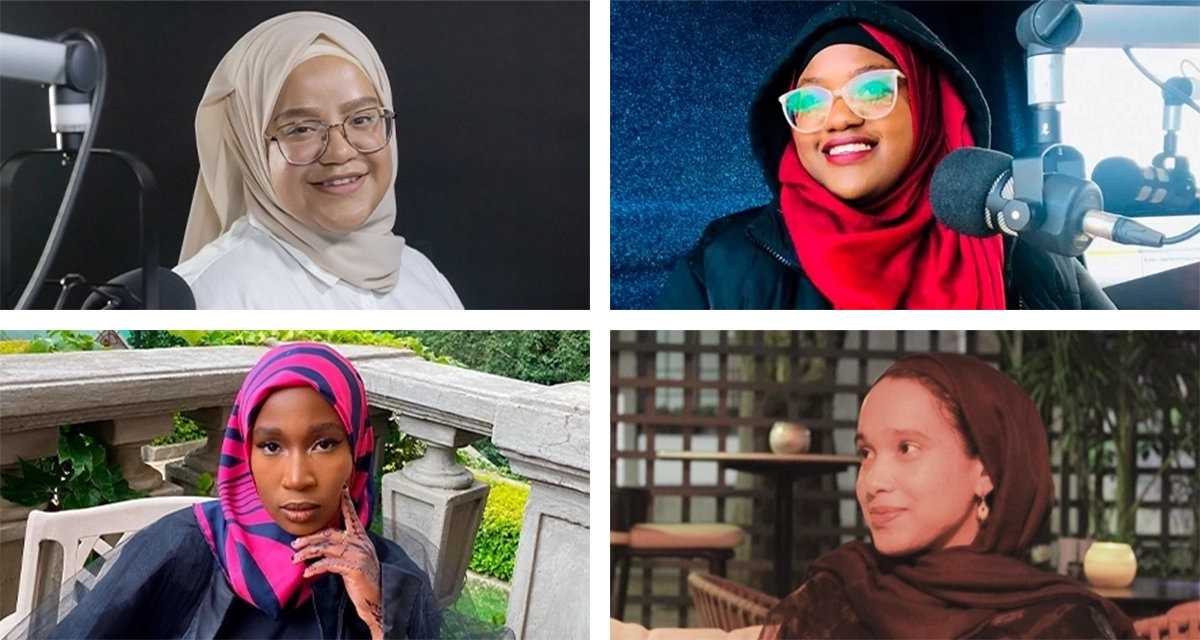Young Muslim women in media
AS we celebrate Women’s Month, it’s important to recognise the powerful role that young Muslim women are playing in South Africa’s media landscape. Their voices are making waves, bringing fresh perspectives and driving change in ways that are both inspiring and impactful.

by NONTOBEKO AISHA MKHWANAZI
AS we celebrate Women’s Month, it’s important to recognise the powerful role that young Muslim women are playing in South Africa’s media landscape. Their voices are making waves, bringing fresh perspectives and driving change in ways that are both inspiring and impactful.
Each representing different qualities, these young women in radio, print and television continue to exhibit the unique blend of strength and a firm stand against injustice through their respective works.
One such inspiring figure is 29-year-old Aneeqa du Plessis, news editor at The Voice of the Cape in Cape Town. As she reflects on the significance of Women’s Month, du Plessis underscores the opportunity this month presents for individuals and communities alike.
‘The month is a time for personal reflection, honouring inspiring women activists and personal heroines such as mothers, aunts, sisters and female colleagues who shape aspirations and dreams,’ says du Plessis.
Acknowledging the legacy of the 1956 women’s march against Apartheid enforced laws, du Plessis notes, ‘I believe we have made significant strides since the courageous women took to the streets in 1956. Their bravery and determination laid the groundwork for many of the freedoms and rights we enjoy today. However, while we have made progress, there is still much work to be done to fully honour their legacy.’
Providing another unique perspective into the significance of this month is Shakirah Thebus, a 29-year-old journalist and photographer at Cape Argus, one of Cape Town’s leading newspapers.
Thebus highlights that this month is also about the forgotten women, whom everyone sees but doesn’t take enough time to show appreciation for their hard work in communities.
‘These women, some silent heroes, are continuing the work. They’re in our community soup kitchens, they’re fighting and protesting against gender-based violence (GBV) and femicide, and loss of life due to wanton violence, and not just in South Africa. They’re in our academic institutions, non-profit organisations (NPO), etc,’ says Thebus.
She also highlights the vital contributions of Muslim women in the struggle against Apartheid.
‘Muslim women were active in the fight against Apartheid, and their contributions and sacrifices are as sacred as others,’ states Thebus.
She believes it is crucial to continue drawing inspiration from their legacy to address contemporary challenges.
Offering further insight into the significance of this month is Bibi Amina Phili, a 27-year-old radio host and media personality at the Durban-based Radio Al Ansaar.
Phili underscores the importance of upholding the legacy of influential women above and beyond 1956.
‘In carrying on the legacy of strong Muslim women who have come before us, we should not forget nor disregard women like Khadijah (RA) and Aisha (RA). Sharing their stories and achievements can empower Muslim women to take on leadership roles,’ asserts Phili.
Phili also points out that the contribution of Muslim women in the struggle against apartheid is not fully appreciated.
‘Unfortunately, I don’t think we’re doing enough to honour their legacy. There’s still much work to be done to address gender inequality, economic empowerment and social justice,’ she remarks.
Introducing a different dimension, Maimoona Selinah Mabena, the 28-year-old INX Prime Live presenter based in Johannesburg, reflects on the personal significance of Women’s Month.
‘Women’s Month is a time for women to reflect, reevaluate and introspect their lives.
‘If they find themselves unhappy with their current situation, they can draw inspiration from the various stories shared during the month to navigate their lives and chart a new direction where they can thrive and be the best version of themselves,’ says Mabena.
She also expresses gratitude for the foundation laid by the women who fought an oppressive system citing that it has inspired her to strive tirelessly to bring about change.
‘Their sacrifices have allowed me a platform to challenge misconceptions and contribute to an informed society that can make better decisions to evoke change,’ says Mabena.
Mabena also highlights a broader societal issue, stating, ‘We are not doing enough as a country to honour the women who have come before us. This is evident in our reactions to the abuse of women. While GBV victims often face inadequate support, it is crucial for society to step up and address these issues more effectively.’
For Mabena, honouring the legacy of the women of 1956 means using any platform to raise awareness about the ongoing struggles faced by women not only in South Africa but globally.
She emphasises, ‘It is our responsibility to advocate for those who are oppressed, including women in Palestine and other regions where injustice persists. By doing so, we continue the fight for equality and justice that began with our remarkable pioneering women.’

Write your comment.